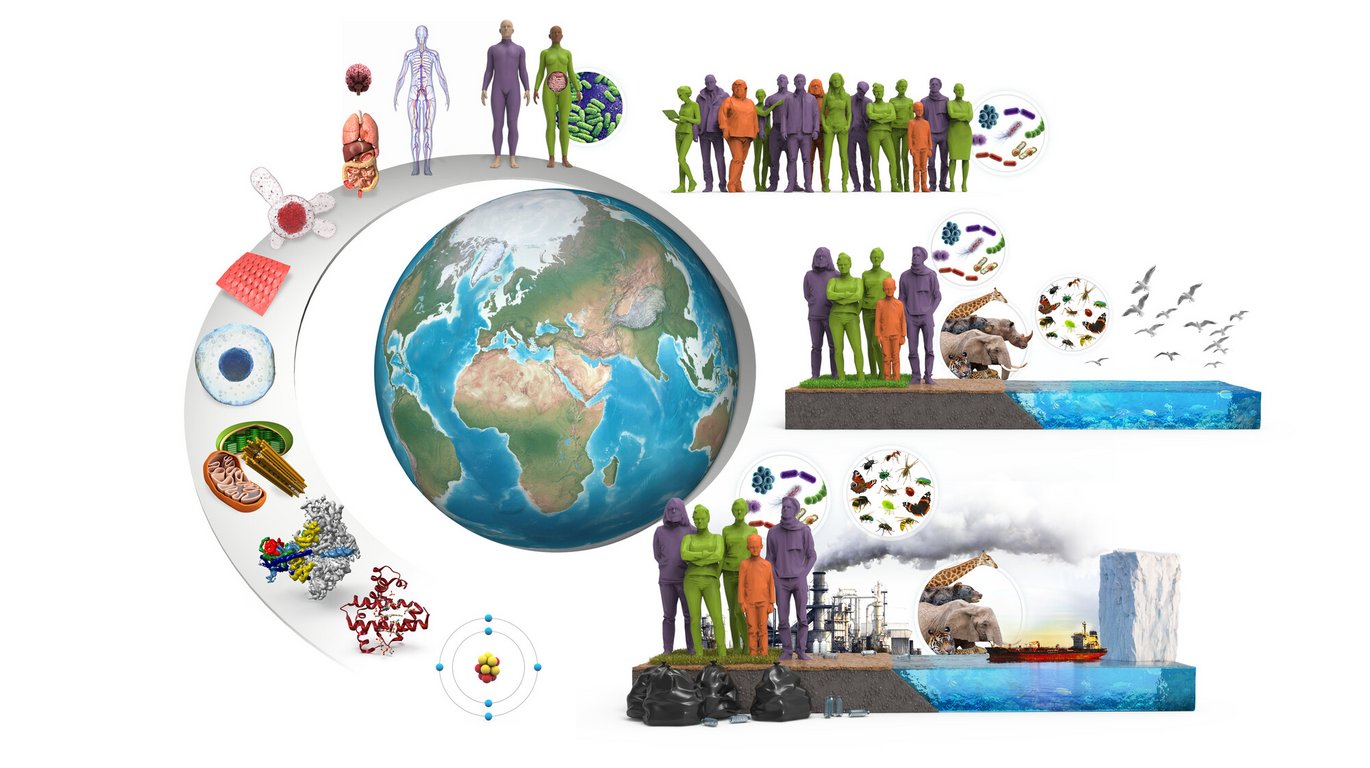Explore the opportunities in the new EMBL programme ‘Molecules to Ecosystems’
The EMBL programme ‘Molecules to Ecosystems’ outlines the plans for EMBL's next five-year cycle in 2022-2026.

The EMBL programme ‘Molecules to Ecosystems’ outlines the plans for EMBL's next five-year cycle in 2022-2026.
EMBL’s vision is to advance understanding of ecosystems at the molecular level and study life in context. The result will be fundamental research that expands what we know about life on earth and provides new means to address major global challenges.
This new Programme will expand EMBL’s scope to study the molecular basis of life in the context of changing environments, transforming our understanding of life on earth and informing potential solutions for some of society’s biggest challenges, such as irreversible loss of biodiversity, antimicrobial resistance, pollution, climate change, food security, and emergent pathogens. More research – at the molecular level – is needed to understand the underlying principles of phenotypic variation and how organisms respond to changing environments.
From exploring the molecular components inside a cell to studying whole populations and ecosystems, EMBL scientists will build upon EMBL’s existing strengths and expertises to explore these research themes that foster collaborative, multidisciplinary research: Molecular Building Blocks, Cellular and Multicellular Dynamics, Microbial Ecosystems, Infection Biology, Human Ecosystems, Planetary Biology, Data Sciences, and Theory@EMBL
